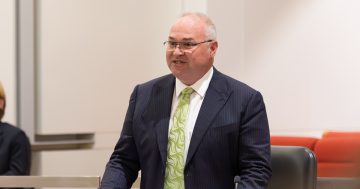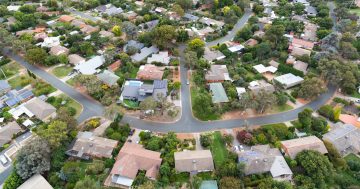
A Canberra winter can be time of great privation and poor health for some renters. Photo: File.
Canberra’s infamous ice boxes remain in the sights of housing campaigners as they launch a new campaign today (Friday) for minimum energy efficiency standards in rental properties.
Winter is coming, and the national push, dubbed Healthy Homes for Renters, involves 50 community organisations including ACTCOSS, Shelter ACT and Better Renting.
The campaign claims thousands of Australians are dying in cold homes due to poor design and construction and inadequate or no heating at all.
Research points specifically to respiratory and cardiovascular disease, including a 2015 study published in the Lancet medical journal which estimated that 6.5 per cent of deaths in
Australia are attributable to cold.
The community organisations are calling for minimum standards such as measures to reduce heat loss through ceilings, or draughts around doors and windows to reduce the health risks of inefficient housing.
Professor Peter Sly, a paediatric respiratory physician, says a healthy home environment is essential for optimising child growth, health and wellbeing and for decreasing life-long risk of chronic disease.
“Adverse environmental exposures in early life, including during fetal development and early childhood, increase life-long risk of chronic non-communicable diseases such as asthma, chronic lung disease, cardiovascular disease and stroke, obesity and type 2 diabetes and neurodevelopmental and behavioural disorders,” he said.
Better Renting Executive Director Joel Dignam said adopting minimum standards was part of the the Labor-Greens Parliamentary Agreement and the ACT Government had begun talking to community organisations and other stakeholders about the issue.
But what the organisations and ACT renters, who were already under pressure paying the highest average rents in the country, want to see was “enactment and implementation”.
“This is an issue where rapid action can make a big difference for people currently struggling,” Mr Dignam said.
He said renters faced high energy costs and some did not even use what heating there was.
“But for many people the issue isn’t higher power bills, it is an issue of not being able to heat their homes adequately at all,” he said.
Mr Dignam said that the cold forced people to go to bed early wearing beanies and jackets, or they avoided being at home by staying out at libraries or the office where it was warm.
He said many properties that were too cold and damp and suffered from mould, which was something a lot of Canberra renters would be familiar with, and which had particularly pronounced health issues.
“These are experiences that they shouldn’t be having in their homes and everyone in Canberra should have a home that is going to support their health,” he said.
Concerns that some landlords would simply pass on the cost of such measures to their tenants were dismissed.
Mr Dignam said landlords were already charging the maximum amount the market could stand and there was not much room for rents to go higher.
But he said he knew landlords who were prepared to update their properties because they wanted to do the right thing by their tenants as well reduce their property’s environmental impact and carbon footprint.
Australian Council of Social Services CEO Dr Cassandra Goldie said people on low incomes often lived in inefficient rental homes and had no ability to make improvements, so they were forced to either ration energy or go without other essentials like food and medicine to pay their power bills.
Minister for Energy and Emissions Reduction, Shane Rattenbury said the government was developing mandatory energy efficiency standards for rental properties and would enact regulation by the end of this year with measures to be phased in over coming years.
He said this work would include consultation with a range of stakeholders including renters, landlords, rental advocacy groups, the Real Estate Institute ACT and the insulation industry.
“In a recent survey on the ACT Your Say Community Panel, more than four in 10 renters said they cannot keep their homes comfortably warm, so we know energy efficiency is a problem that needs to be addressed here in the ACT,” he said.
Mr Rattenbury said several government programs were already helping renters to reduce energy costs including the Actsmart Renters’ Home Energy Assessments program, which offers a free online assessment tool and free in-home energy assessments and the Actsmart Sustainable Home Advice Program.
The Government had also committed to a five-year $50 million program to improve building efficiency and sustainability for social and public housing, low-income owner-occupiers and the lowest performing rental properties.




















